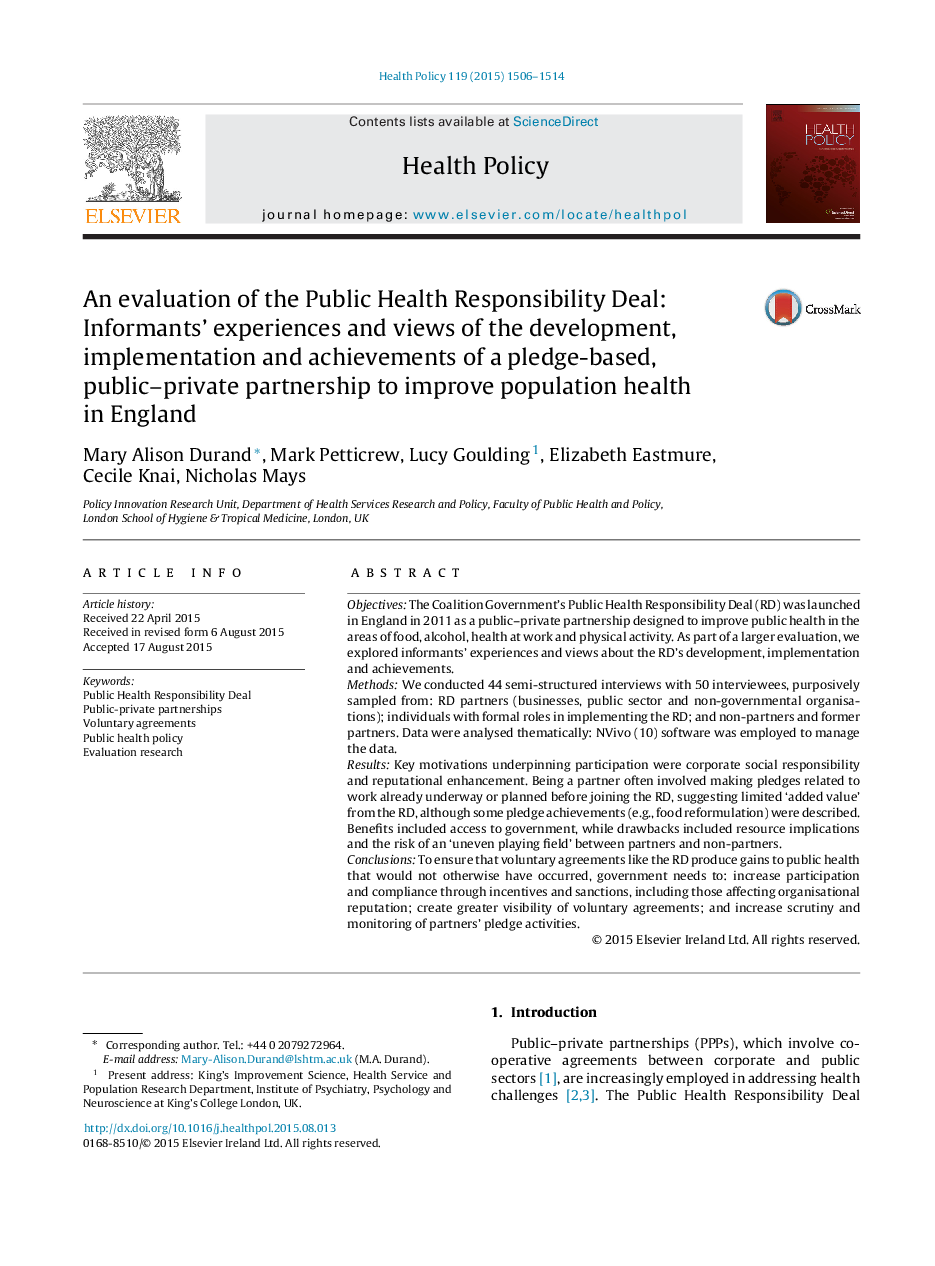| کد مقاله | کد نشریه | سال انتشار | مقاله انگلیسی | نسخه تمام متن |
|---|---|---|---|---|
| 6239104 | 1278985 | 2015 | 9 صفحه PDF | دانلود رایگان |

- Business partners participated in the Responsibility Deal for reputational reasons.
- Partners frequently chose pledges reflecting work they were already doing.
- The Responsibility Deal is likely to have limited 'added value'.
- Government needs to set out a clear vision for the RD.
- These findings have implications for the development of other voluntary agreements.
ObjectivesThe Coalition Government's Public Health Responsibility Deal (RD) was launched in England in 2011 as a public-private partnership designed to improve public health in the areas of food, alcohol, health at work and physical activity. As part of a larger evaluation, we explored informants' experiences and views about the RD's development, implementation and achievements.MethodsWe conducted 44 semi-structured interviews with 50 interviewees, purposively sampled from: RD partners (businesses, public sector and non-governmental organisations); individuals with formal roles in implementing the RD; and non-partners and former partners. Data were analysed thematically: NVivo (10) software was employed to manage the data.ResultsKey motivations underpinning participation were corporate social responsibility and reputational enhancement. Being a partner often involved making pledges related to work already underway or planned before joining the RD, suggesting limited 'added value' from the RD, although some pledge achievements (e.g., food reformulation) were described. Benefits included access to government, while drawbacks included resource implications and the risk of an 'uneven playing field' between partners and non-partners.ConclusionsTo ensure that voluntary agreements like the RD produce gains to public health that would not otherwise have occurred, government needs to: increase participation and compliance through incentives and sanctions, including those affecting organisational reputation; create greater visibility of voluntary agreements; and increase scrutiny and monitoring of partners' pledge activities.
Journal: Health Policy - Volume 119, Issue 11, November 2015, Pages 1506-1514